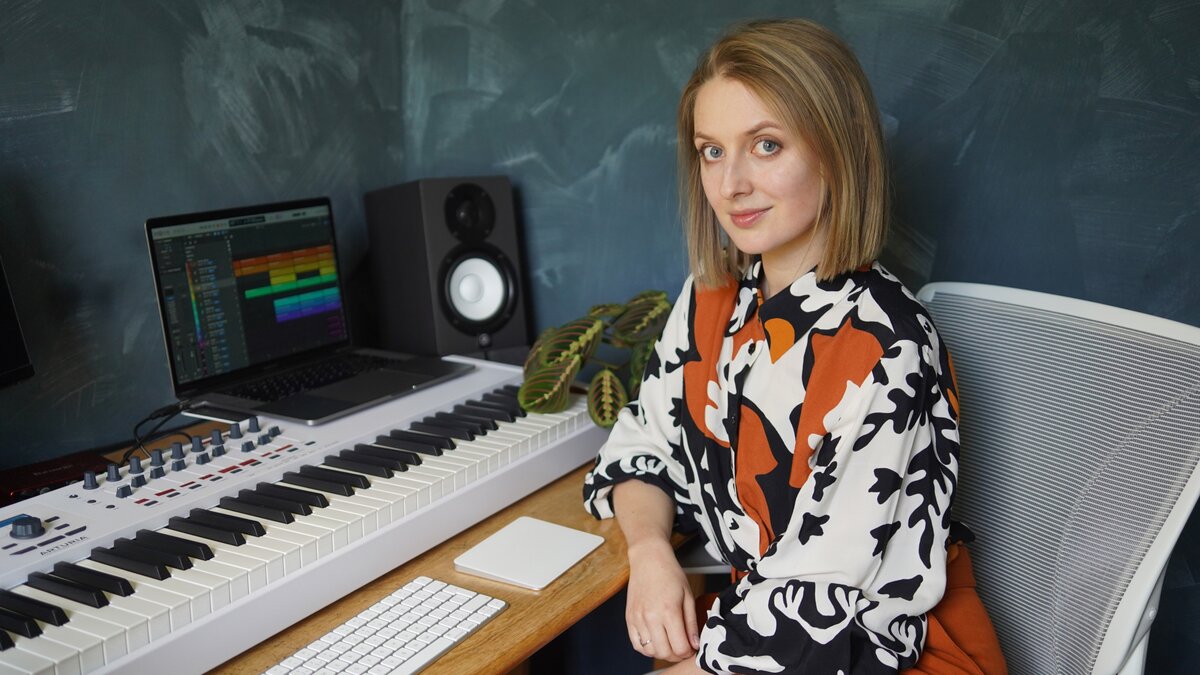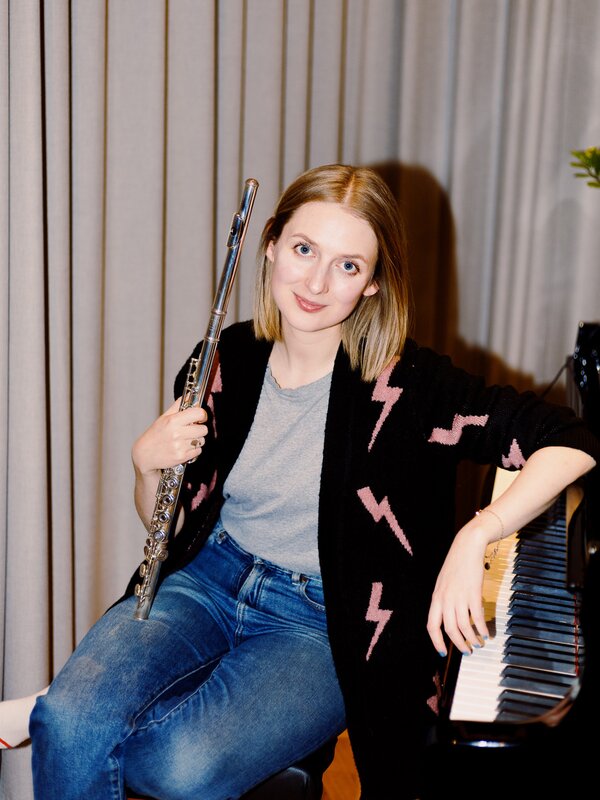Composer, prinipal flute, and the face of Orchestral Tools’ Instagram

If you’ve seen our Instagram account lately, you’re probably already familiar with the work of Claire Wickes.
If you haven’t caught any of her videos, you can watch them on the Orchestral Tools Instagram page here.
Claire is a composer and musician, and when she’s not creating videos for us, she’s the principal flautist of the English National Opera.
“I started my musical journey playing the recorder when I was 7 years old. I had a massive enthusiasm for it, so much so that my mum had to introduce a rule of no practice before 7am… You can imagine what a nightmare my house must have been. But really my main instrument was always the flute. I’m now a professional flautist, so the big break of my career was getting my job with the English National Opera.”
After completing an undergraduate degree in music from Oxford and a postgraduate from the Royal College of Music, three extenuating factors pushed her to begin composing in earnest.
The first was her familiarity with her instrument—“I was trying to get away from having a narrow view of music. So at university I set out to experience stuff outside of the performing world, and it broadened my outlook. It’s very easy as a performer to just focus on your instrument and let that be your entire musical perspective.”
The second was the burgeoning love of film music. “The thing that started me thinking about composition was actually getting into film scores. I found the whole world of contemporary composition quite exclusive in a way and it didn't really excite me to get into that. The more I got into film scores as a listener, the more I thought ‘that's something that would be really fun’. To tell stories with music, to create atmospheres, soundscapes, that kind of thing—I found that really appealing.“
"The more I got into film scores as a listener, the more I thought ‘that's something that would be really fun’. To tell stories with music, to create atmospheres, soundscapes, that kind of thing—I found that really appealing."
The third and final push towards composition will seem all too familiar for some of you. While freelancing with an orchestra, Claire found herself en route to perform with a few male colleagues. She says: “The subject of composing comes up and everyone present gives their take on what, if anything, they’d been working on–and they completely excluded me from the conversation. It didn’t even occur to them that I too might be a composer. It was as though I was invisible!”
Despite a whole childhood and adolescence spent practicing flute (at times for 10 hours a day), an undergraduate degree in music from Oxford, and a performance degree from the Royal College of Music, her male counterparts didn’t think to ask whether she was a composer, or even interested in composing.
“I had always felt that composing wasn’t a path that was available to me, but in that moment I realised that these guys didn’t have anything that I don't”—a modest reflection from someone who was already on trial as the principal flautist of the English National Opera before she left college.
"We were all musicians and we were all working at the same level. It was a weirdly cathartic moment as I realized that one of the things holding me back was my lack of confidence in myself–and at least that was something that I could control."
Cue the pandemic, a pause to paid performing work, and an eerily clear schedule.
Some took up knitting during their time in lockdown, and many made sourdough bread or brushed up on Tik-Tok dance routines—Claire downloaded Logic and took the leap into the world of composing.
“I started with a book.” Telling stories with music was key from the outset. “This was about six weeks into the pandemic. When it became evidently clear that performing work was not just suddenly going to come back.”
“It’s this beautiful book called Good Night Stories For Rebel Girls. A children’s book and every page tells a different story of an inspirational or extraordinary woman. Each day I would open the book and say ‘so who am I doing today?’. Oh Maya Angelou, great! I’ll write a piece of music about Maya Angelou.”
“I gave myself one day to do each piece, because anything else felt a little overwhelming. Having that time limit really just freed me up creatively. I felt like I could write whatever I liked because I was moving on to something else the next day”.
You can listen to some of these 1-day compositions on Claire’s SoundCloud, here's one dedicated to primatologist and anthropologist Jane Goodall.

"It’s this beautiful book called Good Night Stories For Rebel Girls. A children’s book and every page tells a different story of an inspirational or extraordinary woman. Each day I would open the book and say ‘so who am I doing today?’. Oh Maya Angelou, great! I’ll write a piece of music about Maya Angelou."
It was around this time that Claire started posting some snippets of her work on social media, primarily Instagram. She cites the online composer community as a source of knowledge and encouragement, saying “There are so many resources out there, and actually, that’s the thing that I’ve found the most encouraging and heartening about being on social media, especially Instagram. There’s such a supportive community. You can throw a really niche question out there and within an hour you’ll have 10 people helping you out with it.“
With 30 or so of the 1-day compositions under her belt, Claire felt ready to start focusing on some longer-form projects. She recently wrote the score for Batman: Broken Promise, an animated take on the iconic caped crusader.
Currently, Claire splits her time between content creation, composing, and performing with the English National Opera. Check out her Instagram account to keep up to date with her work.